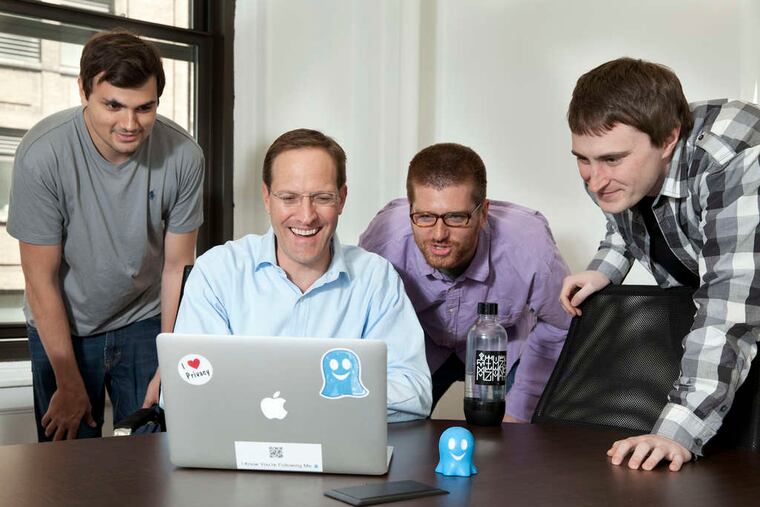Web users reclaim anonymity through privacy programs
Dozens of silent watchers, working for corporations that want to learn about you so they can sell you things, track you when you go online.

Dozens of silent watchers, working for corporations that want to learn about you so they can sell you things, track you when you go online.
Why does America tolerate all that spying?
"Consumers are concerned about their privacy and about being tracked online. But the commission recognizes that a lot of content is advertising-supported, and advertising is tracking-supported," says Peder Magee, a senior staff attorney at the Federal Trade Commission who specializes in "behavioral advertising" policy.
"So what we've said all along is, 'If you're going to do this, be open and transparent, and give consumers control.' "
Sophisticated Web users know they're being tracked, and that tracking-based ads help pay to make Web sites available - much as ads pay for other media like newspapers and TV, says David Morgan, a former newspaper lawyer for Philadelphia's Duane Morris L.L.P. who later led pioneering online ad-and-tracking agencies like Tacoda Inc. He's now a New York media investor and head of TV ad-buying software-maker Simulmedia.
Tracker-identification programs like Evidon Inc.'s Ghostery program and browser-sponsored tracking systems from Apple, Microsoft, and Mozilla make the hidden watchers more visible to curious Web users, and make blocking them easier.
"We're trying to reveal the invisible Web," says Scott Meyer, chief executive of Evidon, the New York digital advertising company that bought Ghostery from founder David Cancel three years ago.
The Main Line-bred son of a former Sunoco marketing chief, Meyer was a Wall Street investment banker and the New York Times Co.'s digital media chief before joining investment firm Warburg Pincus and using the firm's capital to set up Evidon three years ago.
Ghostery claims 18 million users, almost half of whom share their browsing data - anonymously - with the service. Owner Evidon then sells the aggregated data to retail and ad clients. They also pay the firm for guidance on complying with Web privacy guidelines.
Evidon also services the Digital Advertising Alliance's AdChoices program, which makes it easier for consumers to block unwanted online ads.
"People will say they don't like advertising. But people do like the right kind of advertising," says Crystal Gurin, Philadelphia publisher of eMarketer, an online media research and reporting service that uses Ghostery data.
Gurin means advertising that announces itself and tells users about things they want.
"The kind of service Evidon provides is absolutely essential in the world of big consumer advertising," she added. "Especially if this industry strives to be self-regulated."
Advertisers and ad agencies that track Internet users across many websites are making a lot more information public about their tracking activities than the corporations that run popular search, retail, and news sites tell their Web visitors, says Alan Chappell, a New York Internet privacy lawyer. "[Retailers] have already been collecting information on you for 100 years," including store spending habits and credit records, he noted.
Evidon, its San Francisco rival, TRUSTe.com, and trade associations like the Digital Advertising Alliance and their lawyers have successfully prodded advertisers to participate in these tracking-disclosure programs. That has helped ease calls for federal regulation, while also helping advertisers compete with Google and other powerful Web advertising providers, Chappell said.
"[Meyer] has done a fantastic job of leading a very difficult conversation in our industry and putting customers first, with a technology that gives people meaningful transparency and meaningful choice," said Mario Diez, chief executive of West Conshohocken's PointRoll, an online ad agency owned by newspaper publisher Gannett.
"Look, this is still very new. Everyone is learning," Diez added. "I'd like to believe that making this information available to consumers has had a positive effect on [U.S. Internet] policy."